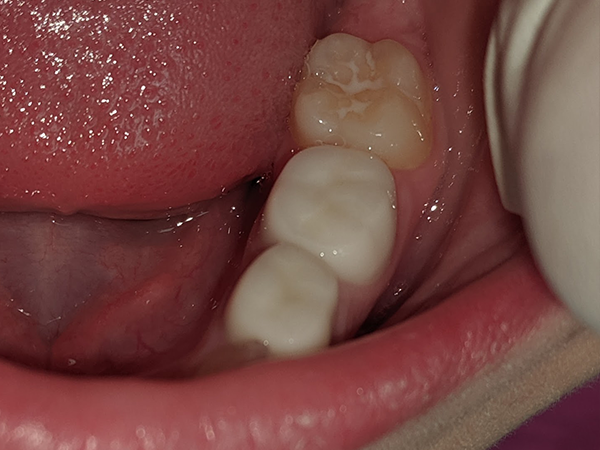When Do I Need Crowns? Find Top Dentists

Dental crowns are a common restoration method used to repair and strengthen damaged teeth, improving both their function and appearance. These tooth-shaped caps are placed over the affected tooth, covering it completely, and are designed to restore the tooth’s original shape, size, and function. However, determining when you need a crown can be a bit perplexing, as it largely depends on the condition of your tooth and the extent of the damage.
One of the primary reasons for needing a dental crown is to repair a severely decayed tooth. When a cavity is too large to be filled with a traditional filling, but the tooth is still viable, a crown is often the best solution. The crown provides a protective layer around the tooth, preventing further decay and potential breakage. In such cases, the dentist will remove the decayed portion of the tooth and shape the remaining structure to fit the crown.
Another scenario where crowns are essential is after a root canal procedure. Following a root canal, the tooth becomes more brittle and susceptible to cracking or breaking. A dental crown is placed over the tooth to add strength and protect it from further damage. This not only ensures the tooth remains functional but also enhances its aesthetic appeal by matching the color and shape of the surrounding teeth.
Crowns are also necessary for teeth that are cracked or fractured. A cracked tooth can be extremely painful, especially when chewing or exposed to varying temperatures. By covering the tooth with a crown, the dentist can prevent the crack from spreading further, thus saving the tooth from potential extraction. For teeth that are merely worn down due to grinding or erosion, crowns can restore their original shape and facilitate proper chewing and speaking.
In addition to these functional uses, dental crowns play a significant role in cosmetic dentistry. They can be used to improve the appearance of misshapen or discolored teeth, creating a more uniform and appealing smile. With advancements in dental technology, crowns can be made from a variety of materials, including porcelain, ceramic, and gold, each offering unique benefits and recommendations based on the location of the tooth, the patient’s budget, and personal preferences.
The process of getting a crown typically involves two visits to the dentist. During the first appointment, the dentist prepares the tooth for the crown by removing any decay and shaping it to fit the crown. An impression of the tooth is then taken and sent to a dental laboratory where the crown is fabricated. Meanwhile, the patient is fitted with a temporary crown to protect the tooth. At the second appointment, the temporary crown is removed, and the permanent crown is cemented into place.
Comparison of Crown Materials
| Material | Benefits | Considerations |
|---|---|---|
| Porcelain | Aesthetic appeal, durable, resistant to wear | More expensive, may not be as strong as other materials |
| Ceramic | Natural look, biocompatible, easy to adjust | Can be less durable than porcelain or gold |
| Gold | Strong, durable, resistant to corrosion | More expensive, less aesthetic appeal for visible teeth |

FAQ Section
How Long Do Dental Crowns Last?
+Dental crowns can last for many years if properly maintained, with some lasting up to 15 years or more. The lifespan of a crown depends on various factors, including the type of material used, the location of the tooth, and the patient's oral hygiene habits.
Are Dental Crowns Painful?
+The procedure of getting a dental crown is typically not painful, as it is performed under local anesthesia. However, patients may experience some sensitivity or discomfort after the procedure, which can be managed with over-the-counter pain relievers.
How Do I Care for My Dental Crown?
+To extend the lifespan of your dental crown, it's essential to practice good oral hygiene, including brushing your teeth at least twice a day, flossing daily, and visiting your dentist for regular check-ups. Avoid chewing on hard foods or substances, as this can damage the crown.
In conclusion, dental crowns are a versatile solution for a variety of dental issues, ranging from severe decay and root canal treatments to cosmetic improvements. By understanding when you might need a crown and consulting with experienced dentists, you can make informed decisions about your dental health and aesthetics. Whether for functional repair or cosmetic enhancement, crowns offer a durable and natural-looking solution that can restore your smile and confidence.

